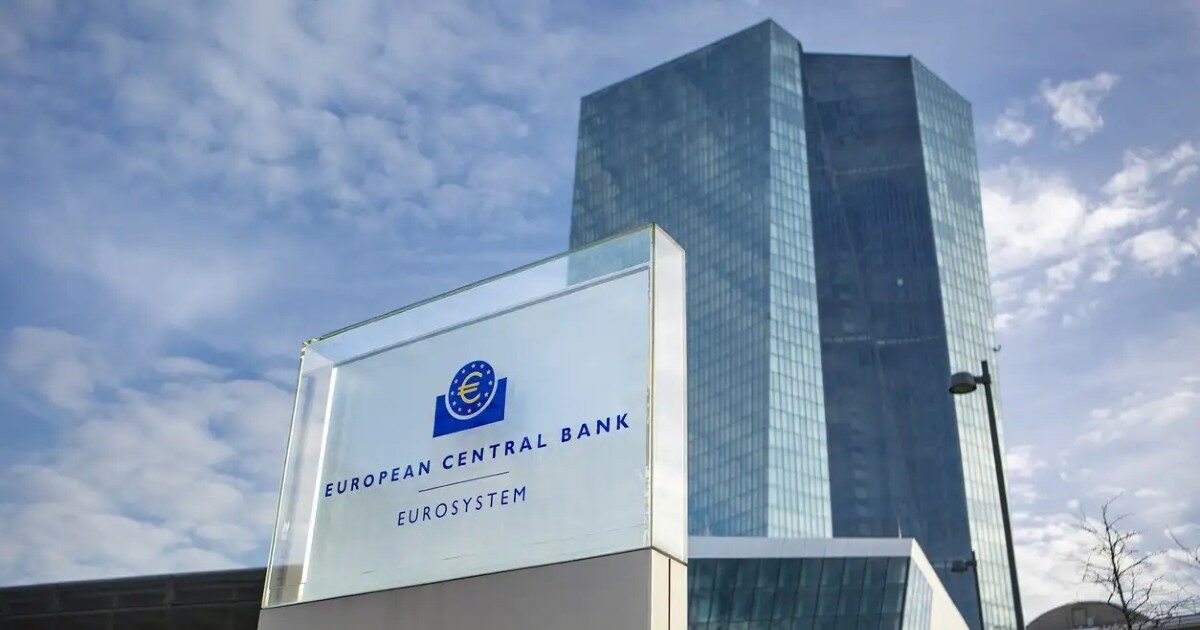On Good Thursday (17.04.2025) the time of major decisions for the European Central Bank (ECB), which will be called upon to re -form the interest rates Borrowing, this time under the burden of developments with trade war and duties.
The scenario that international analysts prefer as more likely it is that The ECB’s Board of Directors will decide a new interest rates of 0.25%, and another within the year, As the impact of tariffs on European development and inflation have not yet begun to ‘look’.
However, the concern between central bankers and European capitals is pervasive. Even after the “freezing” of US duties against the EU for three months, and with the expectation that the bilateral negotiations will ultimately bear fruit, The 10% contribution is normally applied to European products, with 25% burdening steel and aluminum exports. Frankfurt is strongly discussed how the impact of duties on the next monetary policy decisions will be “borne”.
Particular emphasis is placed on the growth front, as further deceleration is expected at a time when the European economy had, in any case, anemic growth. Forecasts for this year show 0.9% growth rate in the eurozonewithout taking into account a possible impact of a further existence of the trade war after the end of the quarter.
More confusing are expectations for inflation, as despite the fact that duties are expected to have an upward effect, The course so far is considered quite satisfactory, with the 2% target for the eurozone being visible within 2025, Unless, obviously, developments lead to a new inflationary “explosion”.
Based on the data so far and with the statements of the central bankers, it is expected that the ECB reacts to the threat of recession with the intensity of the interest rate cuts to stimulate growth, throwing them even below the so -called “neutral” level.
This scenario is not without risks, as in conjunction with the impact of tariffs on prices, A ‘jerk’ reduction in money costs threatens with the challenge of a new inflationary shock that will overthrow every design. Economists in Bloomberg Economics research, they even put on the table and even An increase in interest rates from the ECB to February 2026.
Essentially, all the ECB can do is monitor the evolving situation by performing “balance exercises” between opposing forces, at a time when only the “weapons” of monetary policy do not look like enough to provide security as well as security, as heavy weight now falls and In the budgetary decisions of European governments (Occuping the restrictions of the Stability Pact) but also the financial diplomacy of the next three months.
How is Greece affected
The impact of the evolving situation on the Greek economy are direct and indirect.
The direct consequences concern the impact of duties on Greek developmentas 10% of the duty is already affected by exports of EUR 2.4 billion, and a possible slowdown in eurozone countries will still lead to still Intense decrease in demand for Greek products.
Even bigger will be the consequences if and if European contributions against US products begin to apply, as will be expensive a series of American products that we import to Greeceenhancing inflationary pressures.
The indirect consequences on the Greek economy are those that derive from the “triceps” that Trump puts on the normalcy of monetary policy. ECB decisions on interest rates, either upward or downward, have a real impact on European economies, along with Greek.
In any case, Greece’s high growth goals require a “loose” monetary environment. The expected new decrease by 0.25% is considered within the program and contributes to this. However a faster course of reductions beyond the foreseen, will inevitably have A reinforcing effect on inflation, which in Greece is more persistent than the eurozone, with the driving force for services.
Otherwise, where the ECB delays the course of interest rates by wanting to compensate inflationary pressures, The high cost of money will affect Greek growth and investment.
The budgetary margins will narrow, setting again New data on government plans for benefits and relief of citizens.
